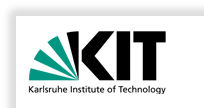Henrik Bohnenkamp (RWTH Aachen, Germany)
Jeremy Bradley (Imperial College London, UK)
Ivana Cerna (Masaryk University, Czech Republic)
Kenneth Chan (King's College London, UK)
Martin Fraenzle (University of Oldenburg, Germany)
Lars Grunske (Swinburne University of Technology, Australia)
Ludovic Henrio (INRIA Sophia Antipolis, France)
Holger Hermanns (Universität des Saarlandes, Germany)
Jan Kofron (Charles University in Prague, Czech Republic)
Samuel Kounev (University of Karlsruhe, Germany)
Heiko Koziolek (ABB Research Ladenburg, Germany)
Markus Lumpe (Swinburne University of Technology, Australia)
Raffaela Mirandola (Politecnico di Milano, Italy)
Sotiris Moschoyiannis (University of Surrey, UK)
Iman Poernomo (King's College London, UK)
Ralf Reussner (University of Karlsruhe, Germany)
Antonino Sabetta (ISTI CNR Pisa, Italy)
Cristina Seceleanu (Mälardalen University, Sweden)
PC co-chairs:
Barbora Buhnova (Zimmerova) (Masaryk University, Czech Republic)
Jens Happe (FZI Forschungszentrum Informatik, Germany)




